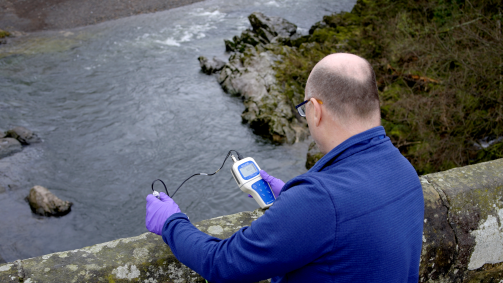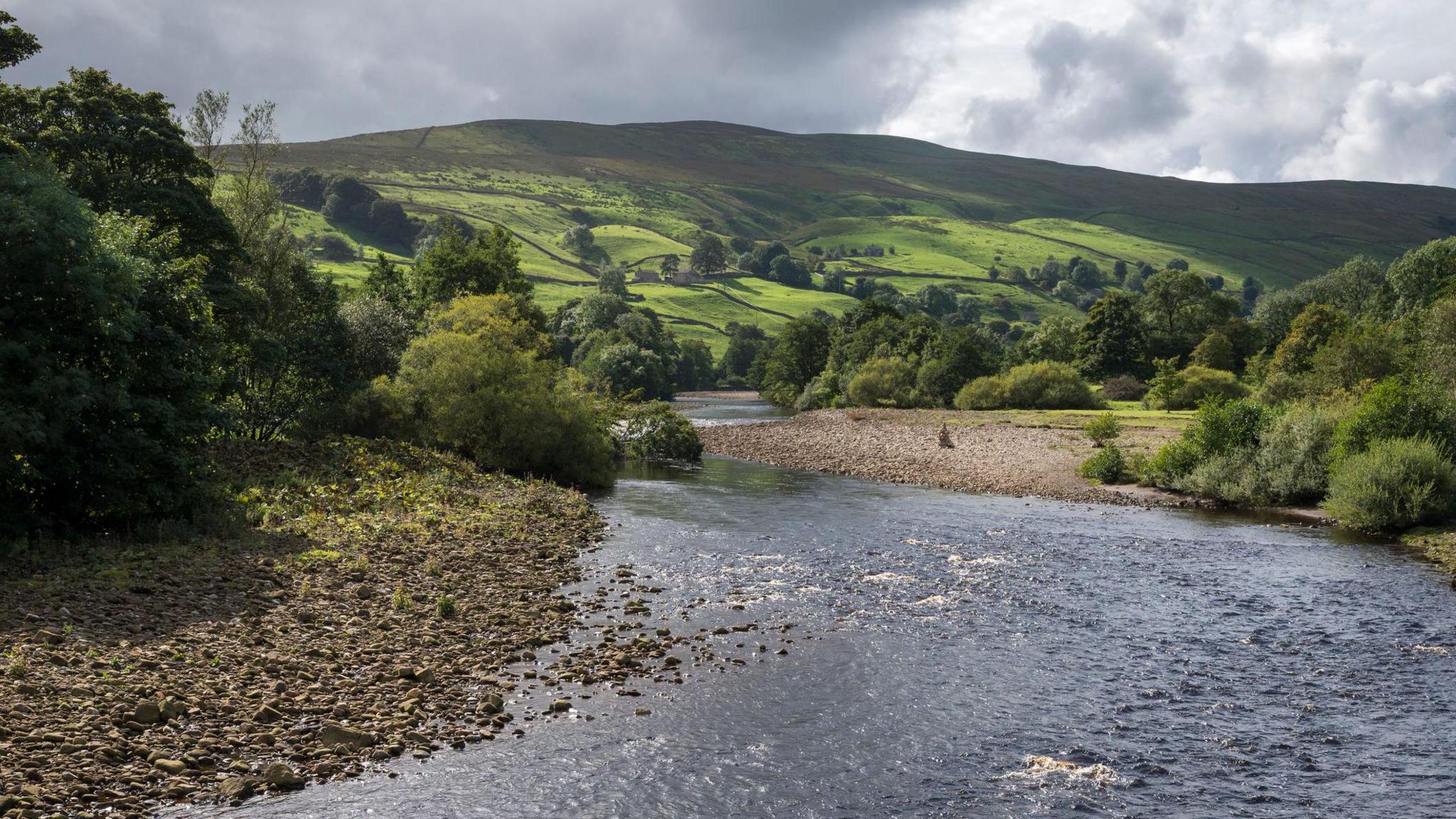Concerning level of antibiotics found in rivers

Researchers have new evidence showing pharmaceuticals are polluting England's National Parks
- Published
Dangerous pharmaceuticals are polluting countryside rivers, according to research by the University of York.
The study on England's National Parks, including the Yorkshire Dales, found many rivers had been contaminated with medication such as antidepressants and antibiotics.
Out of 54 locations, drugs were detected in river water at 52 sites.
Some pharmaceuticals were found at "levels of concern" for freshwater organisms and humans who came into contact with the water.
Although researchers found that levels of drug pollution were generally lower in National Parks than in UK city rivers, the study identified "alarming exceptions".
Some rivers in the Peak District, for example, were found to have concentrations of pharmaceuticals higher than that seen in major cities such as London.
The University of York said the concentration of antibiotics there were "higher" than levels thought to promote antimicrobial resistance.
This sparked health concerns for people enjoying the water for wild swimming, canoeing and other sports.

Rivers in the Yorkshire Dales had the fewest active pharmaceutical ingredients detected
Professor Alistair Boxall, from the university, said: "Our National Parks are true hotspots for biodiversity and essential for our physical health and mental well-being.
"We need to act swiftly to protect these irreplaceable environments and ensure the health of wildlife and visitors alike."
He explained there were several reasons these rivers were more polluted than expected, including lower dilution, connectivity to sewage treatment systems and seasonal population surges.
"It is the fact that they come together in often remote and fragile places that make our National Parks particularly vulnerable to this type of pollution," Mr Boxall added.
"It is vital authorities come together to urgently tackle this issue."
Rivers in the Peak District were among the most polluted, with 29 active pharmaceutical ingredients (APIs) detected.
The fewest APIs were found in the Yorkshire Dales, where seven were detected.
The antihistamines cetirizine and fexofenadine and the type two diabetes treatment, metformin, were detected in all National Parks.
Listen to highlights from North Yorkshire on BBC Sounds, catch up with the latest episode of Look North or tell us a story you think we should be covering here, external.